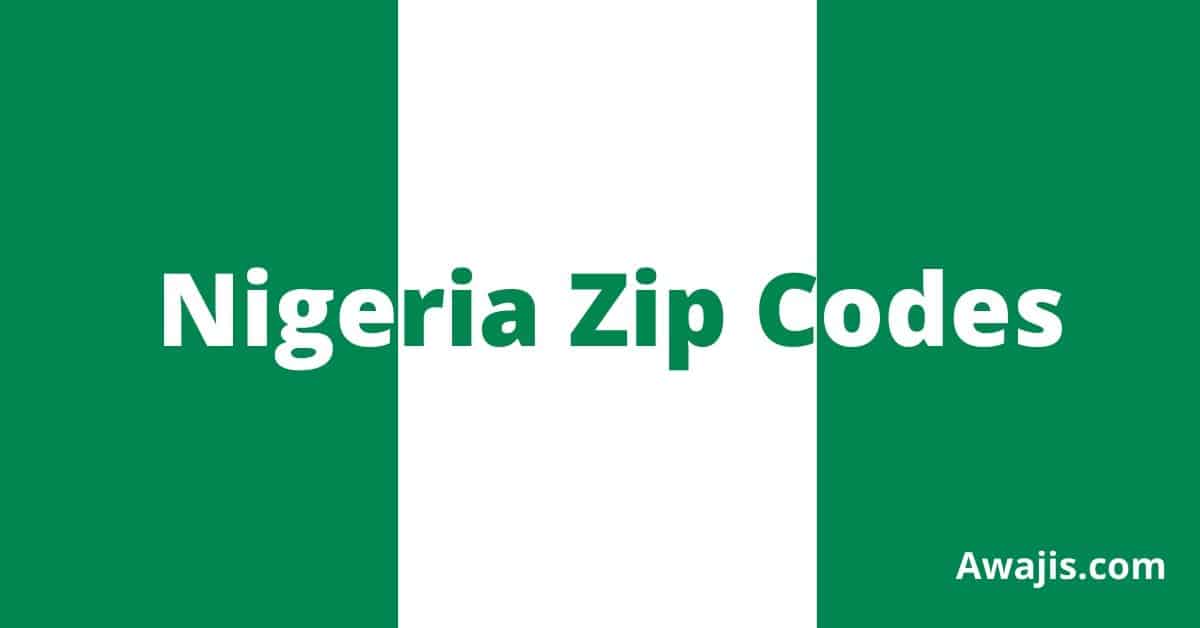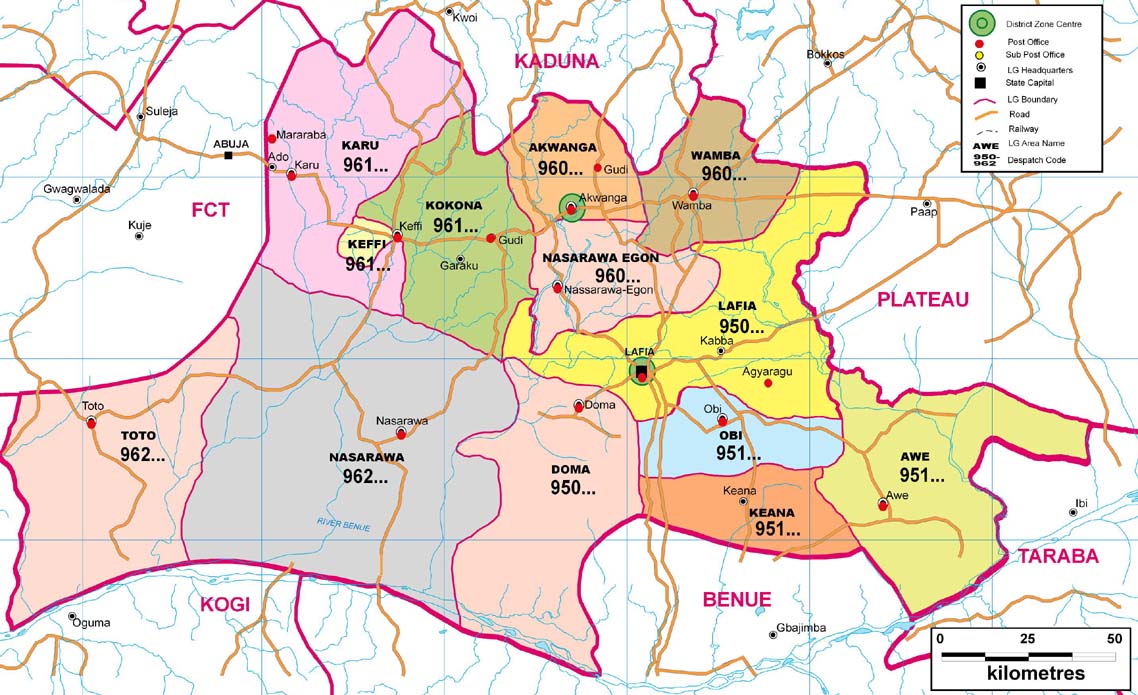When it comes to navigating the world of postal codes in Nigeria, you're about to discover a treasure trove of information that'll make your life easier. Ever found yourself scratching your head trying to figure out what those mysterious numbers mean? Well, buckle up because we're diving deep into the realm of Nigerian ZIP codes. This isn’t just another boring guide; it’s your ultimate cheat sheet to understanding how things work in the land of Africa's largest economy.
Let’s face it, dealing with postal systems can sometimes feel like solving a riddle wrapped in an enigma. But don’t worry, we’ve got you covered. Whether you're sending a package to Lagos or receiving one from Abuja, knowing the ins and outs of country ZIP code Nigeria will save you time, money, and a whole lot of headaches. So, let's get started!
This guide isn’t just for the curious minds; it’s for anyone who wants to ensure their mail gets where it needs to go without any hiccups. We'll cover everything from the basics of Nigerian postal codes to advanced tips that’ll turn you into a pro in no time. Ready? Let’s go!
Read also:Macho Man Stephanie The Ultimate Guide To Her Life Legacy And Influence
What is a Country ZIP Code Nigeria Anyway?
First things first, let’s break down what exactly we mean when we talk about country ZIP code Nigeria. Simply put, these are numerical codes assigned to specific areas within the country to help postal services deliver mail more efficiently. Think of them as your address's secret weapon in the world of logistics.
Here’s the deal: Nigeria uses a system known as "Postcodes" rather than ZIP codes, although the terms are often used interchangeably. These codes typically consist of six digits and are divided into two parts, separated by a hyphen. The first three digits represent the region or district, while the last three pinpoint the exact location within that area.
For example, if you're mailing something to Lagos, you might come across a postcode like 101-001. That’s the magic number that ensures your package finds its way to the right doorstep. Pretty neat, right?
Why Are Nigerian ZIP Codes Important?
Now, you might be wondering, "Why should I even care about these numbers?" Well, my friend, here's why:
- They ensure accurate delivery of your mail and packages.
- They help reduce errors in the postal system, saving time and resources.
- They play a crucial role in e-commerce, especially as online shopping continues to boom in Nigeria.
- They make it easier for businesses to manage their logistics and supply chains.
Imagine trying to send a birthday gift to your bestie in Port Harcourt without the right postcode. Chances are, it might end up lost in transit or delivered to the wrong address. That’s why understanding how these codes work is a game-changer.
Understanding the Structure of Nigerian ZIP Codes
Let’s take a closer look at how Nigerian ZIP codes are structured. As mentioned earlier, they typically consist of six digits divided into two parts. But what do these numbers actually mean?
Read also:Event Planner Charlotte Nc Your Ultimate Guide To Hosting A Memorable Event
The First Three Digits
The first three digits of a Nigerian postcode represent the region or district where the address is located. For instance:
- 101 refers to Lagos Mainland
- 900 refers to Abuja
- 401 refers to Enugu
These numbers help postal workers quickly identify which part of the country the mail is destined for. It’s like a GPS for your letters and parcels.
The Last Three Digits
The last three digits of the postcode provide more specific information about the exact location within that region. For example:
- 101-001 might refer to a particular street or neighborhood in Lagos Mainland.
- 900-001 could pinpoint a specific area in Abuja.
This level of detail ensures that your mail doesn’t just end up in the right city but also reaches the correct neighborhood or even building.
How to Find Your ZIP Code in Nigeria
Okay, so now you know what Nigerian ZIP codes are and how they work. But how do you find the right code for your address? Fear not, here’s a step-by-step guide:
Step 1: Use an Online ZIP Code Finder
There are plenty of websites and tools available that can help you find your postcode in seconds. Simply enter your city or town, and voila! You’ll have your code faster than you can say "Abuja".
Step 2: Check with Your Local Post Office
If you’re the old-school type, you can always visit your nearest post office and ask for assistance. The staff there are experts at this stuff and can help you find the right code in no time.
Step 3: Use Your Shipping Provider’s Tools
Most shipping companies, like DHL or FedEx, have tools on their websites that allow you to enter your address and automatically generate the correct postcode. It’s a quick and easy way to ensure accuracy.
Common Mistakes to Avoid When Using Nigerian ZIP Codes
Even the best of us can make mistakes when dealing with postal codes. Here are a few common errors to watch out for:
- Using the wrong number of digits – Remember, Nigerian postcodes are six digits long.
- Forgetting the hyphen – That little dash between the two sets of numbers is important!
- Using outdated codes – Postal codes can change, so always double-check to make sure you’re using the most current one.
By avoiding these pitfalls, you’ll ensure that your mail gets where it needs to go without any hiccups.
ZIP Codes in Major Nigerian Cities
Let’s take a closer look at the ZIP codes used in some of Nigeria’s biggest cities:
Lagos
As the commercial hub of Nigeria, Lagos has a wide range of postcodes depending on the area. Some examples include:
- 101-001: Lagos Mainland
- 234-001: Victoria Island
Abuja
As the capital city, Abuja has its own set of unique postcodes. Here are a few:
- 900-001: Central Area
- 901-001: Garki
Port Harcourt
Located in the southern part of the country, Port Harcourt has its own postcode system. Some examples include:
- 500-001: Diobu
- 501-001: Rumuokoro
The Evolution of ZIP Codes in Nigeria
ZIP codes haven’t always been a part of the Nigerian postal system. In fact, they were introduced relatively recently as a way to modernize and streamline mail delivery. Before this, postal workers relied heavily on manual sorting and often faced challenges in delivering mail to the correct addresses.
Today, with the rise of e-commerce and global trade, having a reliable postcode system is more important than ever. It’s a testament to how far Nigeria has come in terms of infrastructure and technology.
Challenges Facing the Nigerian ZIP Code System
Of course, no system is perfect, and the Nigerian postcode system is no exception. Some of the challenges include:
- Inconsistent use of postcodes by the public and businesses.
- Changes in urban planning leading to outdated codes.
- Difficulty in implementing a standardized system across such a large and diverse country.
Despite these challenges, efforts are ongoing to improve and refine the system, ensuring that it meets the needs of both individuals and businesses.
Tips for Businesses Using Nigerian ZIP Codes
For businesses operating in Nigeria, understanding how to use ZIP codes effectively can make a big difference. Here are a few tips:
Tip 1: Automate Your Postcode System
Invest in software that can automatically generate and verify postcodes for your customers. This reduces errors and improves efficiency.
Tip 2: Educate Your Customers
Make sure your customers know the importance of providing accurate postcodes when placing orders. You can include this information on your website or in your marketing materials.
Tip 3: Stay Updated
Keep an eye on any changes or updates to the postcode system and adjust your processes accordingly. Staying informed will help you avoid any potential disruptions.
The Future of ZIP Codes in Nigeria
As technology continues to evolve, so too will the way we use ZIP codes in Nigeria. We might see the introduction of more advanced systems that incorporate GPS data or even artificial intelligence to further enhance accuracy and efficiency.
Who knows? Maybe one day, we’ll be able to send mail to a specific address using nothing but a smartphone app. The possibilities are endless!
Conclusion: Mastering the Art of Nigerian ZIP Codes
And there you have it, folks! Everything you need to know about country ZIP code Nigeria. From understanding their structure to avoiding common mistakes, you’re now equipped with the knowledge to navigate the world of Nigerian postal codes like a pro.
So, whether you’re sending a postcard to a friend or running a thriving e-commerce business, remember that those little numbers play a big role in ensuring your mail gets where it needs to go.
Now it’s your turn! Got any questions or tips of your own? Leave a comment below and let’s keep the conversation going. And don’t forget to share this guide with anyone who might find it useful. Together, we can make the world of Nigerian ZIP codes a little less mysterious and a lot more manageable.
Table of Contents
- What is a Country ZIP Code Nigeria Anyway?
- Why Are Nigerian ZIP Codes Important?
- Understanding the Structure of Nigerian ZIP Codes
- How to Find Your ZIP Code in Nigeria
- Common Mistakes to Avoid When Using Nigerian ZIP Codes
- ZIP Codes in Major Nigerian Cities
- The Evolution of ZIP Codes in Nigeria
- Challenges Facing the Nigerian ZIP Code System
- Tips for Businesses Using Nigerian ZIP Codes
- The Future of ZIP Codes in Nigeria


